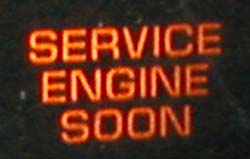
Auto recalls have some roots in lean
As 2014 finished up, an article in December’s Quality Progress, caught my eye. It was about the record year of recalls for the automotive industry. Since it was published, Chrysler announced an additional, huge recall as well. The analysis in the article pointed to three main contributing factors but I think they fall short of some underlying trends, especially some side effects of lean that are oft overlooked.
The first factor noted was focused on the global supply chain. I agree that as consolidation in the supply chain has made recalls larger because parts are now more often shared amongst make, models and even automotive companies. This is a real factor but misses the future trend and the underlying force behind the consolidation.
Pursuing waste (muda) in the factories has shifted a burden to the supply chain
Pursuing waste (muda) in the factories has shifted a burden to the supply chain
The consolidation of suppliers is one of survival through scale. Pursuing waste (muda) in the factories has shifted a burden to the supply chain. An automotive plant fabricates essentially nothing and merely assembles the final product. Even sub assemblies are often done by some other company. So the waste was simply pushed to someone else to deal with.
Although Toyota has long had the philosophy of partnering with a few key suppliers, they too shifted the burden but acknowledged their involvement to solve the problems by partnering with suppliers. Toyota extended their value stream outside of their four walls. Detroit has done some of this but mostly it has been through inspection and contracts rather than fundamental lean changes in the supply chain.
Suppliers in response to Detroit have pushed back as their consolidation reached enough power to do so. Suppliers sought out standardization, another core waste called mura (variation). When standardization has occurred this has allowed defective product to go to many more vehicles. This is part of the lean journey that is advocated by the Toyota Production System. The side effect that Detroit sees is one hidden in inventory.
Inventories are quite large the further upstream from assembly and further downstream. Automakers have done a good job using lean to minimize inventories down to hours in the assembly plant. This is a phenomenal difference from a decade ago. But suppliers are quite keen and clever. Another motivation of consolidation in the supply chain has been to scale large enough to handle all of the variety of parts. This form of variation is pretty large and another point of leverage for the suppliers toward standardization.
The concept of leverage is one that is totally the opposite of Toyota. It is not partnering at all but vying for control and power. Ultimately I think this will distract Detroit as power struggles and non-beneficial variation reduction will occur. It won’t help the consumer but rather protect either Detroit’s or suppliers’ interests. The frequency of recalls will probably go down but the magnitudes are likely to hold steady.
